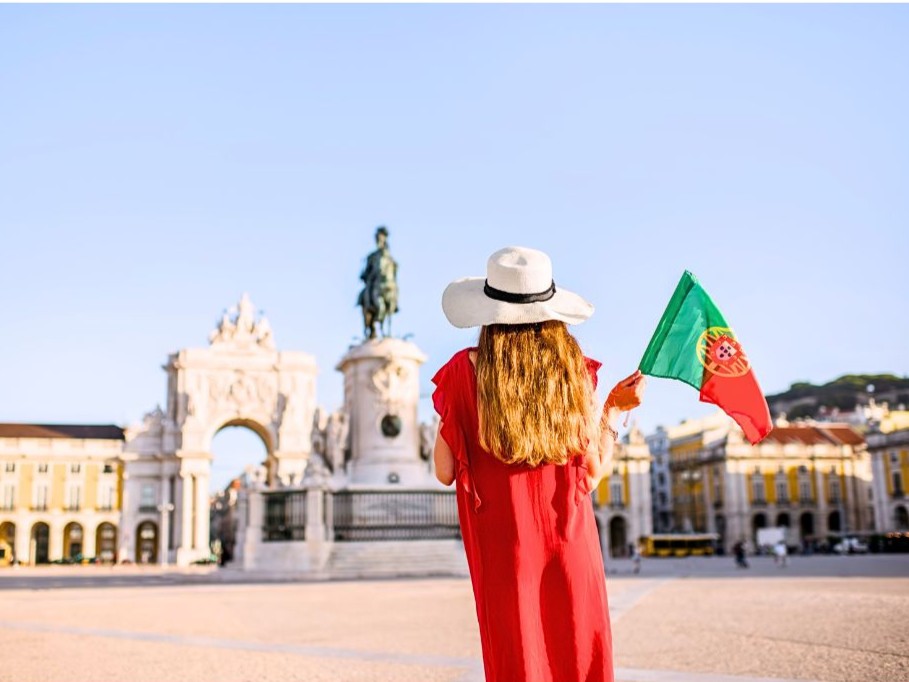This is a story of orange, both the fruit and the colour. It is about centuries of trade, commerce and about cultural identity. Portugal and the Netherlands gave us multiple meanings and aplications for orange and oranges. Exploring the origins of this refreshing fruit (and blasting colour) we discovered a lot of interesting facts. In this blog you will discover some fascinating and probably unexpected links that connect both countries. A tale that goes from Amsterdam’s famous canals festivities to the Algarve’s sun-drenched hills.
Dutch Orange origins from medieval nobles
The Netherlands’ relationship with orange begins not with fruit, but with land. In 1544, William I (Willem 1) inherited the “Principality of Orange”, a very small sovereign territory in southern France. When he later led the Dutch resistance against Spanish rule, his name – William of Orange – became synonymous with the Dutch strive for independence. The colour orange transformed from this noble family’s symbol into a banner of freedom.

Orange as a colour of national pride
Today, the Dutch royal family still carries the name Oranje-Nassau. Moreover, the colour orange (oranje) has remained the Netherlands’ unofficial national colour. At special occassions, orange appears everywhere; from the jerseys of the national soccer (voetbal) team to the seas of orange-clad partygoers celebrating King’s Day (Koningsdag) each April. Dutch Olympic athletes also compete wearing orange outfits, Additionally, many Dutch brands use orange in their marketing. Even Dutch carrots were deliberately bred to be orange in the 17th century as a patriotic gesture. Carrots before the 16th century weren’t orange at all. In fact, original carrots were red, purple and white. The Dutch worked on crossing different varieties of carrot crops to come up with the orange carrots we know today.
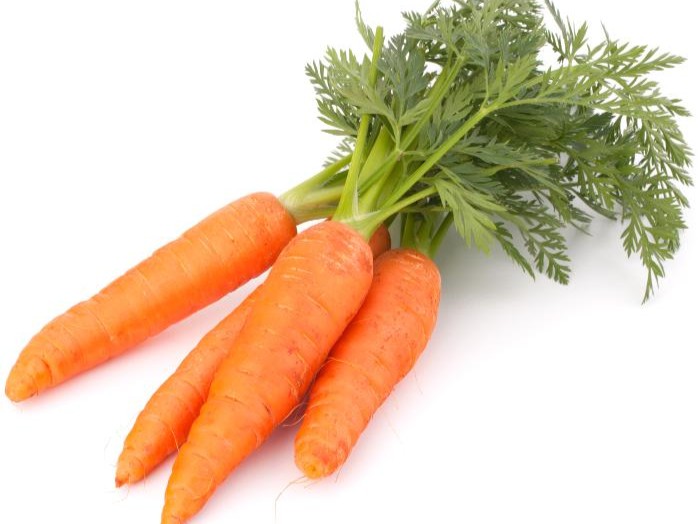
Orange fever is not a virus (but nonetheless contagious)
Orange fever, or ‘Oranjekoorts’ as the Dutch call it, reaches its peak during national celebrations and sporting events. The phenomen otherwise known as ‘oranjegekte’ (orange madness) sees entire cities transformed into orange festivals, with everything from entire streets decorated with orange to foods and fashion taking on the royal hue. It’s a unique example of how a colour can become a powerful expression of national unity and joy.
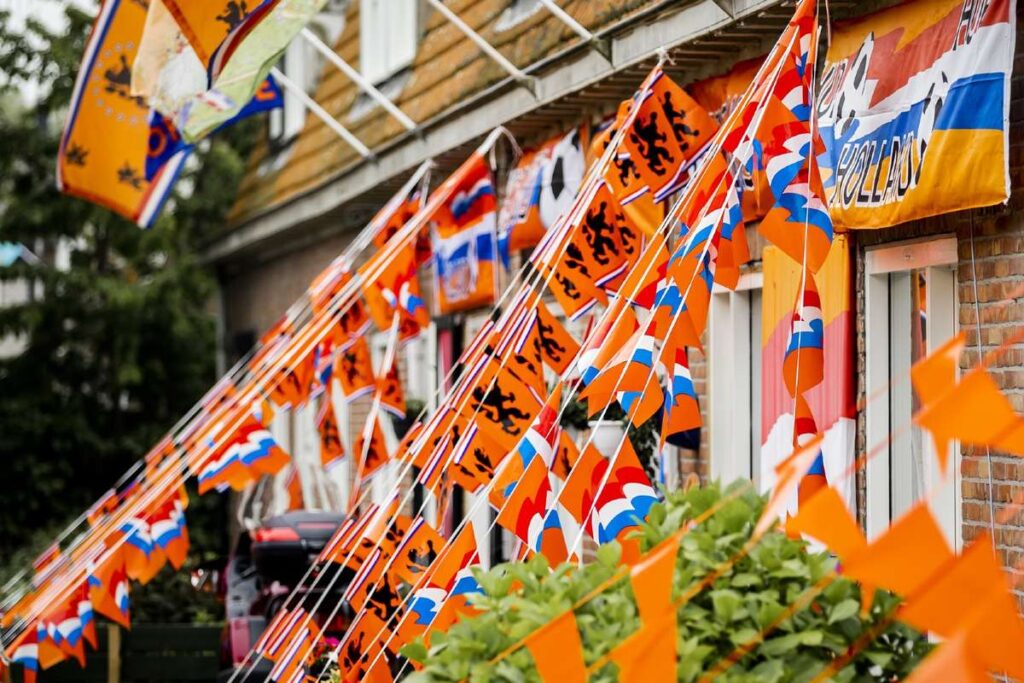
One of Portugal's maritime discoveries was the orange!
While the Dutch embraced orange as a colour, Portugal’s relationship with actual oranges changed the course of European agriculture and trade. The Portuguese Age of Discovery began in the 15th and 16th centuries. Portuguese sailors and traders brought back agricultural innovations that as a result, would transform European cuisine and crop farming. The sweet orange we know today (Citrus sinensis) arrived in Europe thanks to Portuguese maritime routes from China. Back home they were successfully planted in the southern region of Portugal. Before this, Europeans only knew bitter oranges (Citrus aurantium), mainly used for medicinal purposes.
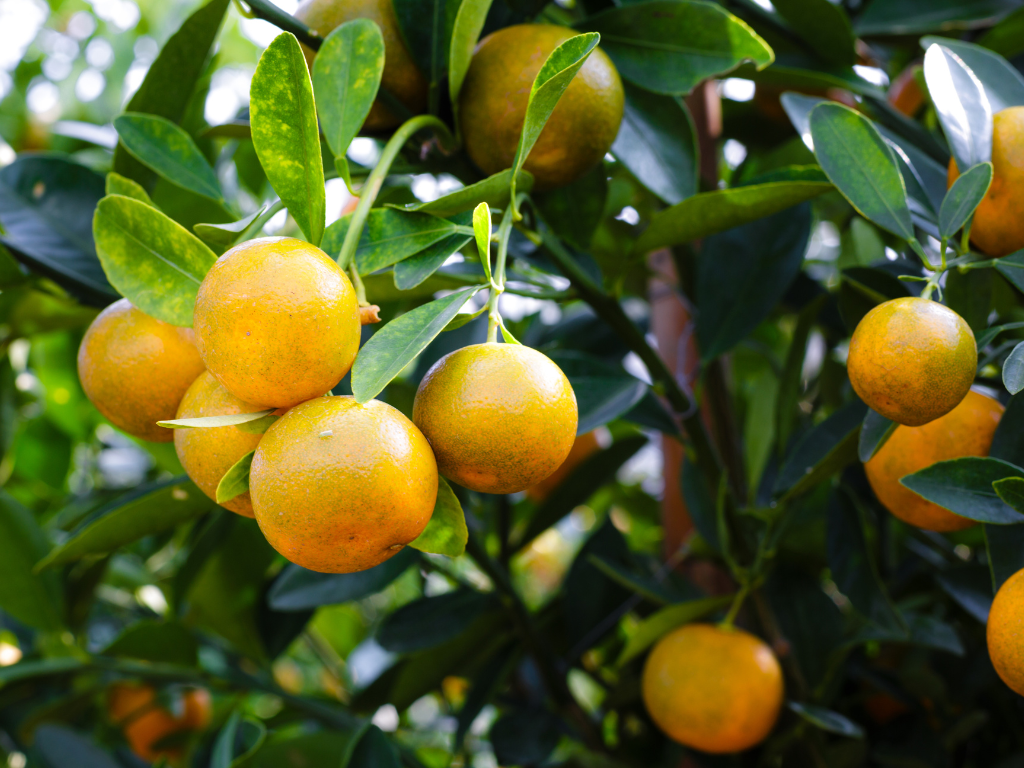
Algarve is Europe’s Orange county
From the beginning, the Portuguese sweet oranges were an instant hit. So much so that in many languages, the word for orange bears witness to a Portuguese connection. For example in Greek, the word for orange is πορτοκαλί (portokali), in Turkish it’s “portakal,”and in Romanian “portocaliu”. The Algarve region with warm, sunny days and mild winters proved perfect for citrus cultivation. These aren’t just any oranges; Algarve oranges gained a strong reputation throughout Europe for their exceptional sweetness and superb quality. By the 18th century, Portuguese orange exports reached its first peak. In contemporary Portugal, orange cultivation remains a significant part of agricultural identity and economy. The Algarve’s PDO (Protected Designation of Origin) oranges are celebrated for their unique sweet and seedless characteristics. A true delight!
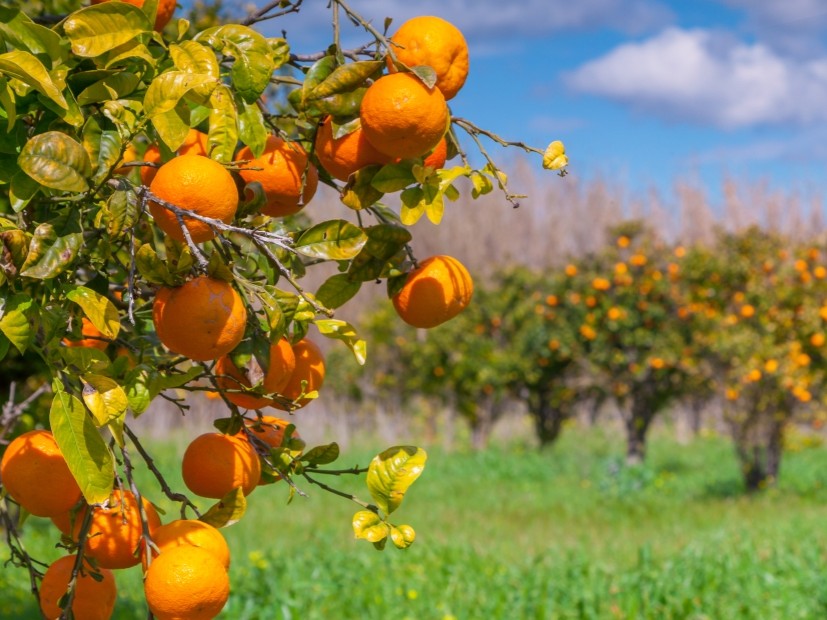
Portuguese cakes and sweets with orange

For a country with such a culinary focus. it is no suprise the Portuguese use the fruit abundantly in cakes, pastries and even savoury dishes. Without prejucide, here some of our orange favourites:
- Bolo de Laranja (Orange Cake) which is a moist, dense orange-flavored sponge cake. Tip for home cookers: this cake is easy to make at home (see recipe).
- Torta de Laranja (Orange Roll). This is a delightful, rolled sponge cake with intense orange flavour and a custardy texture.
- Queijadas de Laranja (Orange Cheese Tarts). These are small bit-size custard-like tarts similar to the more famous queijadas de Sintra, but flavoured with orange.
- Pudim de Laranja (Orange Pudding) is a crowd pleasing flan-style dessert made with orange juice and zest.
- At holidays and festivals “Laranjinhas” (Small candied orange peels) are often used as gifts or as decoration of the desert table.
Orange coloured sustainable solar panels
Meanwhile, in the Netherlands, Dutch innovation in orange-coloured terra cotta solar panels show how this historical colour adapts to modern causes. Recent studies suggest that these solar panels are more efficient than the traditional black solar panels. But there is an aesthetic advantage as well. Orange solar panel match nicely with the orange roof tiles that are common in the Netherlands. They also complements commonly used facade materials such as brick. Another meaningful way of using orange.
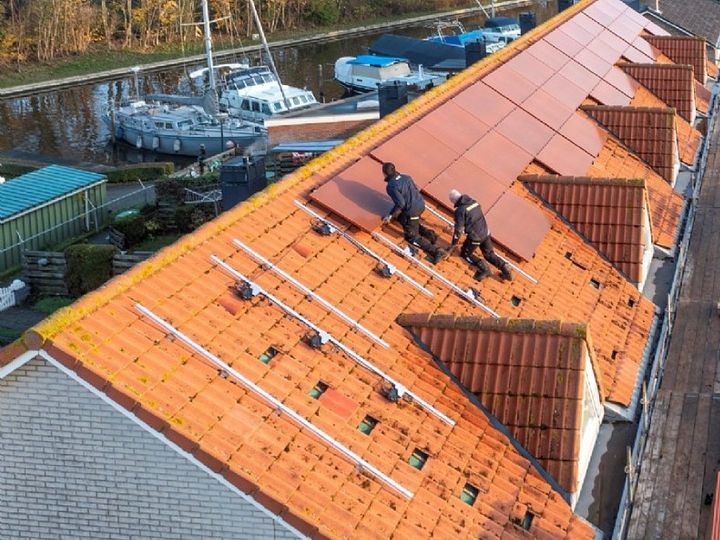
Portugal and the Netherlands: an orange connection
The stories of Oranges in Portugal and the Netherlands reveal the different meanings in both countries. For the Dutch, orange represents the intangible – pride, celebration, and unity. For the Portuguese, it’s both tangible and economic – the sweet fruit that helped establish a unique role in European agriculture and trade. In both cases, orange – whether as colour or fruit – remind us how seemingly simple things are important in a countries” history have the power to unite people in celebration of their shared identity. Portugal and the Netherlands gave us multiple meanings of orange and oranges.
Interested to know more about the similarities and differences between Portugal and The Netherlands? At Obras Technology we are available to help you understand cross-cultural differences. Our goal is to help you improve and expand your business with the best nearshore partners. Want to know more? Contact us!



